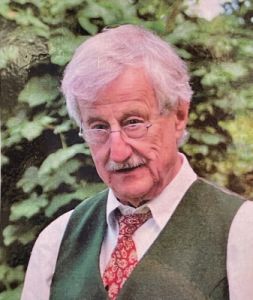Tel: +1 469 836 2108 | Email : drobnakbrass@gmail.com | Login
Rolf Wilhelm (1927-2013)
Composer
Rolf Alexander Wilhelm (23 June 1927 - 17 January 2013) was a German composer, film composer, arranger and conductor, sometimes referred to as the German John Williams.
At the age of seven, Wilhelm began piano lessons. He then attended school in Berlin and Vienna. From 1942 he studied piano and composition with Joseph Marxat the Vienna Academy of Music. His studies were interrupted by service in World War II. Thereafter he graduated from the Hochschule für Musik in Munich where he studied with Henry Squire (conducting), Joseph Haas (composition) and Hans Rosbaud (Master Class).
In 1946, Wilhelm produced a radio play, The Canterville Ghost. This work was impressive enough to secure the 19-year-old composer his first commission, and he soon became a busy freelance employee of the radio station. Even for the relatively new medium television, he composed music for different characters stories from Reiner Zimnik, such as for The Angler Jonas (1954) or The Crane (1956).
Wilhelm's first major film music was for the 1954 first film of the 08/15 trilogy, the most successful films of the postwar era include. Through the 1990s, he composed music for 62 feature films, including classics like And Forever Sing the Woods (1959), It may not Always be Caviar (1961), The Black-White-Red- Poster Bed (1962), Scotland Yard Hunts Dr. Mabuse (1963), Lausbubengeschichten (1964), The Flying Classroom (1973), The Serpent's Egg (1977), Ödipussi (1988) and Pappa ante Portas (1991). Among his most complex film work is the music for major German production Die Nibelungen (1966/67).
Wilhelm also composed the music for far more than 250 radio plays, more than 350 television and 300 commercials. In addition, he created numerous stage musicals, orchestral suites and literary songs.
-International Tuba Euphonium Association
Notes on the Concertino for Tuba and Winds
The instrumentation was for Tuba and Wind Ensemble, but also available for Tuba and Piano.
The Concertino for Tuba and Winds was composed in 1983 at the request of my friend Robert Tucci. The first performance took place on June 23, 1983, during the International Tuba and Euphonium Conference at The University of Maryland. Mr. Tucci was the soloist, accompanied by the United States Air Force Band of Washington, D.C., under the direction of Col. Arnold Gabriel.
My intention was to create an easily comprehended, uncomplicated work of a pleasant nature for the tuba, that fascinating instrument with an enormous range of more than four octaves. Further, I wished to contradict in a jovial manner the ever-prevailing prejudice that the tuba was an uncultivated monster suitable only for march music. The second movement in particular proves how expressive and lyrical this trans substantial instrument can be.
The first movement is marked “Moderato decision” and is in a classical form and utilizes an accented, rhythmic main theme. The agility of the tuba is shown with ragtime rhythms; the cadenza flows into a 6/8 coda, and the movement ends with a short dialogue between the piccolo and tuba. The second movement is marked “Andante lyric” and features lyrical melodies in the tuba against a woodwind background. The third movement is marked “Allegro commodo” and alternates between bombastic and playful thematic ideas. The cadenza is partly a dialogue with other instruments and utilizes a full four octave range in the solo tuba.
-Rolf Wilhelm (see Program Notes for the Solo Tuba for a longer discussion)
Steffin Schmid performs the "Concertino for Tuba and Wind Instruments"
Help support this website by buying me a coffee!

